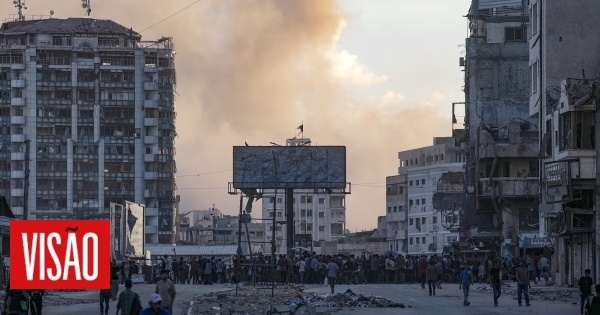Gaza: The Fragile End of a War That Is Not Yet Over

The ceasefire between Israel and Hamas brought tactical relief, but not a strategic solution. Gaza remains the epicenter of regional instability—a mirror of the contradictions of the international system and the moral fatigue of a world incapable of sustaining the peace it proclaims. The truce interrupted the immediate cycle of violence, but it did not alter the structural causes of the conflict: the lack of trust, Palestinian political fragmentation, and the impasse between security and sovereignty.
The so-called "diplomatic victory" is largely the result of collective exhaustion. The prolonged war has led to internal weariness in Israel, a humanitarian collapse in Gaza, and growing international pressure for a pause. The truce brokered by Washington, Cairo, Doha, and Brussels was less a political breakthrough than an emergency brake—a suspension of horror, not the beginning of peace.
The post-war challenges are multiple and interdependent: demilitarizing Hamas, withdrawing Israeli forces, rebuilding the territory, and reestablishing legitimate political authority. Each of these steps requires international coordination and sustained commitment—something that has historically been lacking in the Middle East peace process.
The demilitarization of Hamas is the most sensitive point. The group has established itself as a hybrid entity—simultaneously military, religious, and administrative—filling the void left by a nonexistent Palestinian state. Complete disarmament, without an alternative plan for governance and social support, would be politically unfeasible and socially risky. The only possible path would be a phased process, overseen by international organizations, with a strong component of humanitarian support and institutional reconstruction.
The withdrawal of Israeli forces poses another strategic dilemma. Israel argues that military presence is necessary to prevent further attacks, but this prolonged presence fuels the perception of occupation and undermines any possibility of reconciliation. An abrupt withdrawal, on the other hand, would create a power vacuum that could precipitate chaos. The balance lies in a gradual exit, conditional on multilateral security guarantees—a model that requires a scarce commodity in the region: trust.
The issue of leadership in Gaza is equally critical. Hamas, weakened and delegitimized, has lost political ground. The Palestinian Authority, dominated by Mahmoud Abbas, lacks credibility and a real connection with the local population. The proposal for a transitional administration under the auspices of the UN and the Arab League is seen as a short-term solution, still lacking consensus. Without political legitimacy, reconstruction risks becoming a mere logistical operation, with no lasting social impact.
On the ground, the devastation is almost total. Civil infrastructure has collapsed: power, sanitation, hospitals, and schools have been destroyed. Recovery is estimated to exceed $50 billion and take decades. But reconstruction will not be merely an engineering effort; it will be a test of global government capacity. Transparency in fund management and coordination among international donors will determine whether Gaza will re-emerge as a viable territory or remain dependent on external aid.
The United States' role in this new phase is crucial. Donald Trump's stance, which supported an agreement based on UN resolutions and accepted Arab mediators, represents a tactical reversal from his previous rhetoric. It's a pragmatic, perhaps calculated, gesture, but one that reveals the recognition that even a unipolar power needs regional alliances to sustain stability. Netanyahu, for his part, faces an internal dilemma: balancing security demands with the growing erosion of popular support.
Gaza is today more than a humanitarian crisis—it is a test of the limits of contemporary diplomacy. The war revealed the inability of powers to reconcile moral principles with strategic interests and exposed the fragility of international institutions. It also showed that peace, when reduced to political calculation, ceases to be an ideal and becomes an expedient.
The future of the Middle East will depend less on treaties and more on political will. No reconstruction will be sustainable without a minimum pact of justice—territorial, social, and historical. The real challenge is not military or financial, but ethical: determining whether the 21st century will be capable of producing a peace that is not merely a pause between two wars.
Gaza symbolizes this crossroads. How the world responds to its destruction will say more about contemporary civilization than about the conflict itself. Because if it falls again, it won't fall alone—it will drag with it the illusion that humanity is still capable of learning from the suffering it sows.
The texts in this section reflect the authors' personal opinions. They do not represent VISÃO nor reflect its editorial position.
Visao





